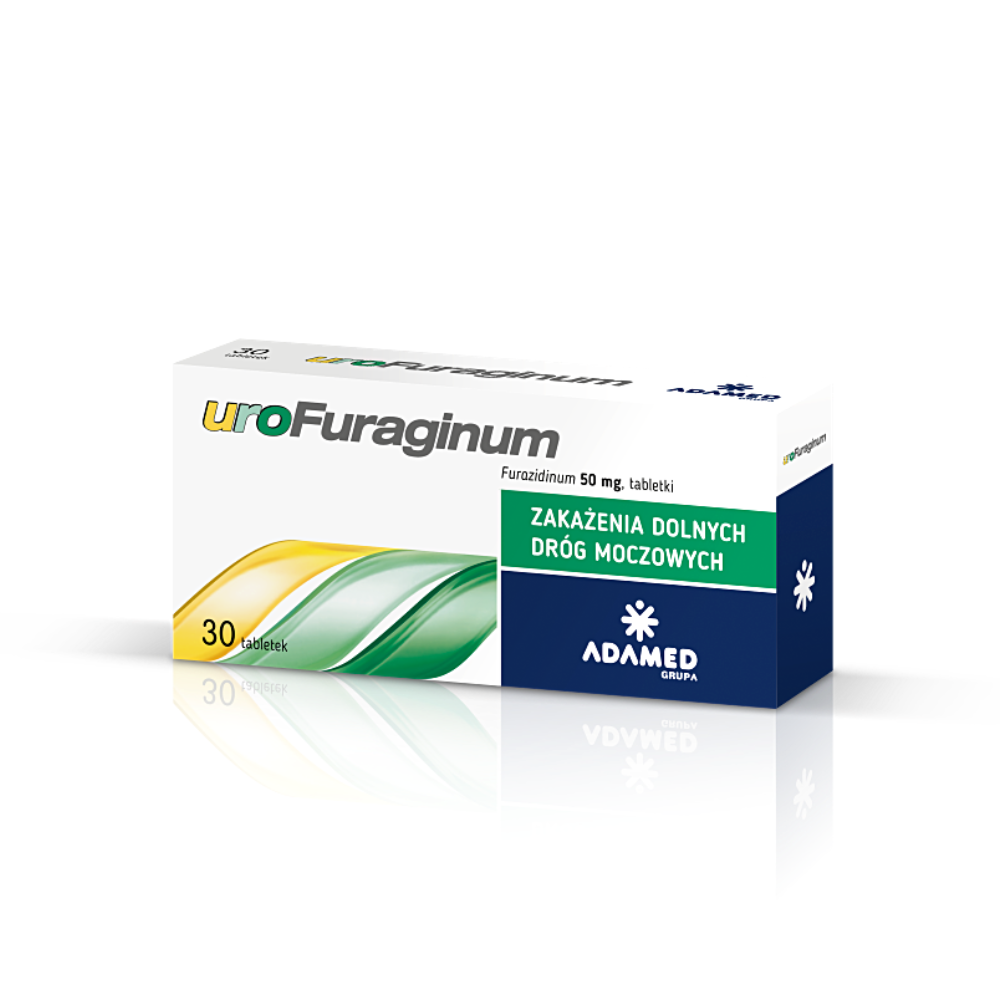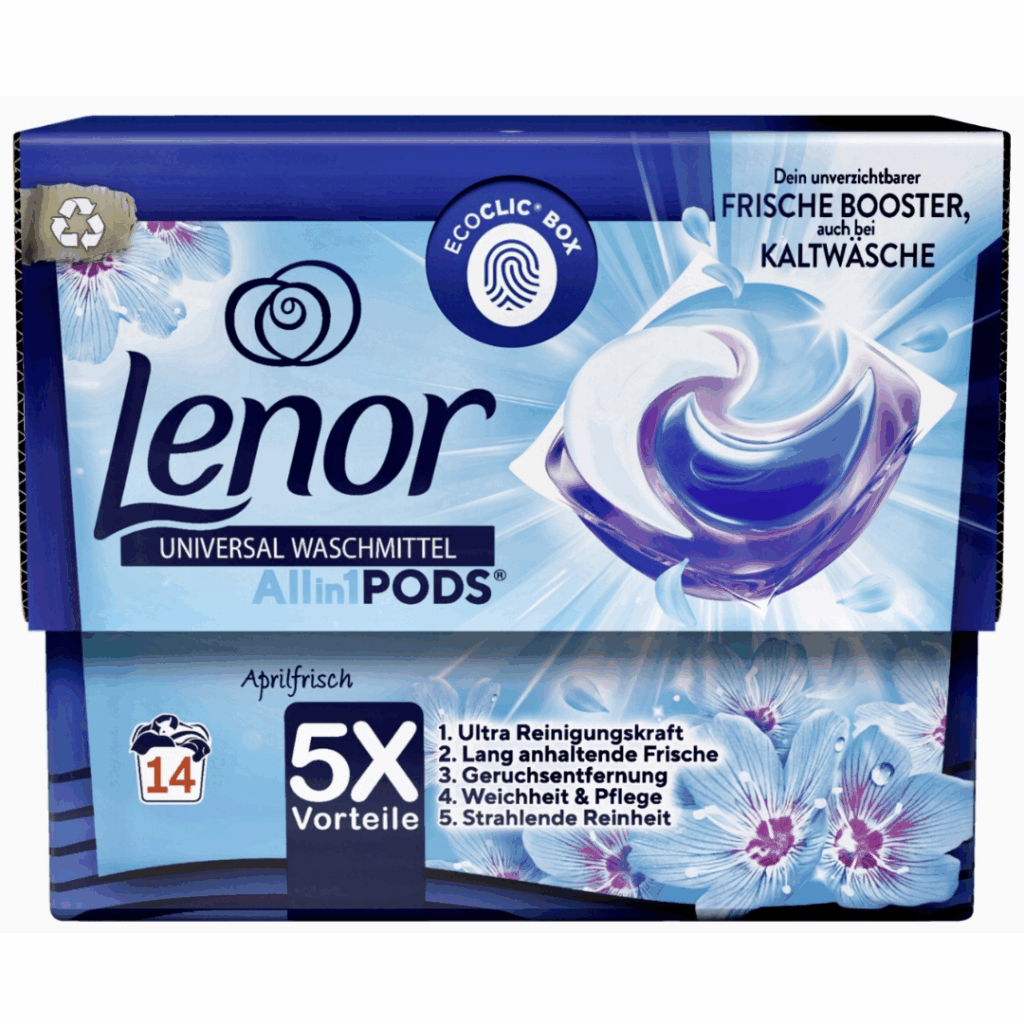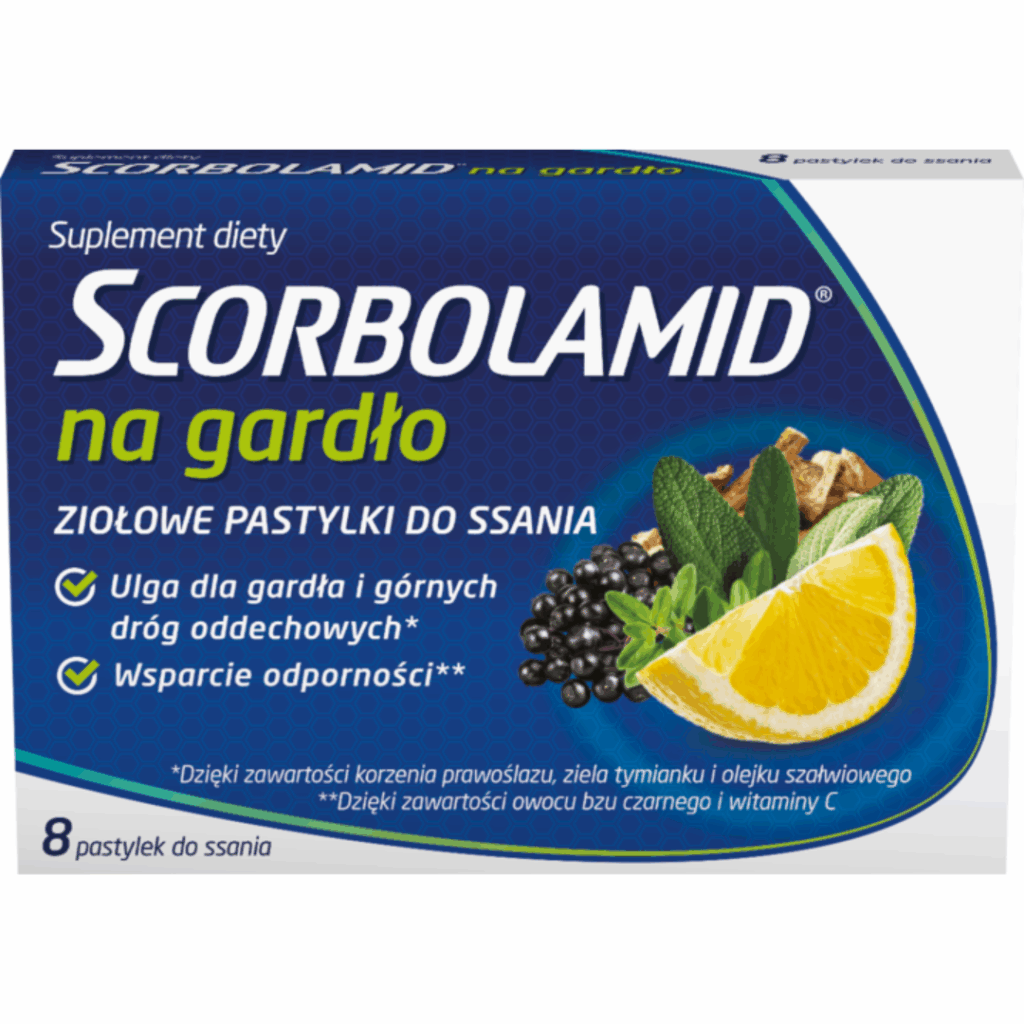UroFuraginum 50mg (30 Tablets)
UroFuraginum is the first drug without a prescription containing furagine, also known as furazidine, which heals lower urinary tract infections. Furazidine is a nitrofuran derivative that inhibits the growth of bacteria that cause urinary tract infections. If after 7-8 days there is no improvement or the patient feels worse, see a doctor.
UroFuraginum should not be used in children and adolescents. The tablets should not be used in the first three months of pregnancy (first trimester) or in women who are term-pregnant or during childbirth. Particular caution should be exercised when used in the last three months of pregnancy (third trimester).
Symptoms
Infection of the lower urinary tract.
Active substance: Furagina
Composition
The active substance is furazidine, also called furagin. 1 tablet contains 50 mg of furazidine.
The other ingredients are: maize starch, sucrose, colloidal anhydrous silica, stearic acid.
How to dose?
- Adults: first day of treatment: 100 mg (2 tablets) 4 times a day; next days: 100 mg (2 tablets) 3 times a day.
- UroFuraginum should be taken orally with meals containing a protein that increases the absorption of the drug.
- The drug is used for 7-8 days. If symptoms worsen or do not improve after 7-8 days, see your doctor.
- UroFuraginum should not be used in children and adolescents.
Always take UroFuraginum exactly as described in the package leaflet or as directed by your doctor or pharmacist. Check with your doctor or pharmacist if you are not sure.
When should you not take UroFuraginum?
- if you are allergic to the active substance or any of the other ingredients of this medicine or other nitrofuran derivatives,
- in the first trimester of pregnancy,
- during term pregnancy (from 38 weeks) and childbirth, due to the risk of haemolytic anemia (anemia related to the breakdown of red blood cells) in the newborn,
- in children and adolescents,
- if you have renal insufficiency, and laboratory tests show creatinine clearance below 60 ml / min or elevated serum creatinine levels,
- if you suffer from known polyneuropathy (a disorder of the nervous system), e.g. in the course of diabetes,
- if you have a deficiency of glucose-6-phosphate dehydrogenase (an enzyme involved in the metabolism of red blood cells).
Contents
The package of UroFuraginum 50 mg contains 30 tablets and a leaflet.
Storage
Below 25°C
Manufacturer
ADAMED
Warnings
Talk to your doctor or pharmacist before using UroFuraginum:
- if you have kidney and liver problems, nervous system disorders, anemia, electrolyte disturbances, vitamin B deficiency and folic acid, or lung diseases,
- if you are diabetic as furazidine may cause nerve damage. Peripheral nerve damage has been observed in patients treated with nitrofuran derivatives. In severe cases, this disorder may be irreversible and may be life-threatening. Therefore, uroFuraginum should be discontinued in the presence of nervous system symptoms (tingling, numbness, feeling of running currents),
- if you develop fever, chills, cough, chest pain, shortness of breath. These may be signs of acute pulmonary reactions and are sometimes seen in patients treated with nitrofuran derivatives. In the event of such symptoms, the drug should be discontinued immediately – most often they disappear quickly or very quickly after discontinuation of the drug. In the case of chronic reactions, the severity of symptoms and their reversibility after discontinuation of drug administration depends on the duration of treatment continuation after the appearance of the first adverse symptoms. It is crucial to recognize the side effect as soon as possible and stop the medication. Lung dysfunction may be irreversible. Chronic reactions have occurred in patients taking furazidine for more than 6 months.
- if the drug is used for a long time. You may then need a blood test to check the number of white blood cells, as well as kidney and liver function.
UroFuraginum contains 13.75 mg of sucrose in one tablet. If you have been diagnosed with an intolerance to some sugars, consult your doctor before taking the drug.
During pregnancy and breastfeeding
- If you are pregnant or breastfeeding, think you may be pregnant or are planning to have a baby, ask your doctor or pharmacist for advice before taking this medicine.
- UroFuraginum should not be used in the first three months of pregnancy (first trimester) or in women who are term-pregnant or during childbirth. Particular caution should be exercised when used in the last three months of pregnancy (third trimester). Furazidine may cause haemolytic anemia in the newborn.
- UroFuraginum should not be used during breastfeeding. Furazidine passes into breast milk and may harm a breastfed baby.
Overdosage
If you use more UroFuraginum than recommended, the following symptoms may occur: headache, dizziness, allergic reactions, nausea, vomiting, anemia. If such symptoms occur, you should immediately contact the emergency department of the nearest hospital as specialized treatment may be required (including gastric lavage and intravenous fluid administration, and in severe cases, hemodialysis). As the drug is eliminated from the body by the kidneys, the risk of overdose is increased in patients with impaired renal function.
Interactions with other drugs
Particular care should be taken when taking the following drugs together.
- Nalidixic acid (antibiotic) – furazidine inhibits its bacteriostatic effect.
- Aminoglycosides and tetracyclines (antibiotics) – intensify the antibacterial effect of furazidine.
- Chloramphenicol and ristomycin (antibiotics) – increase the toxic effects of furazidine on blood cells.
- Probenecid (in high doses) and sulfinpyrazone (drugs that increase the excretion of uric acid in the urine) – reduce the excretion of furazidine and can cause its accumulation in the body, increasing its toxicity and decreasing the concentration in the urine and, consequently, reducing its effectiveness.
- Antacids containing magnesium trisilicate – reduce the absorption of furazidine.
- Atropine – delays the absorption of furazidine, but the total amount of the absorbed substance does not change.
- B vitamins – increase the absorption of furazidine.
Effects on laboratory tests: Urinary glucose results with Benedict’s and Fehling’s solutions may be false-positive when administering furazidine. Urine glucose measurements by enzymatic methods are usually normal.
Side effects
Like all medicines, UroFuraginum can cause side effects, although not everybody gets them.
Common side effects (affects 1 to 10 patients in 100):
- nausea, excessive gas emission;
- headaches.
Side effects that may affect up to 1 in 100 patients:
- cyanosis, megaloblastic anemia (vitamin B12 or folate deficiency anemia) or haemolytic anemia;
- dizziness, drowsiness, visual disturbances, damage to peripheral nerves (also acute or irreversible, especially in patients with renal failure, anemia, diabetes, electrolyte disturbances, vitamin B deficiency);
- respiratory hypersensitivity reactions:
Scute reactions – manifested by fever, chills, cough, chest pain, shortness of breath, effusion into the chest space, changes in the radiographs of the lungs and an increase in the number of a specific type of white blood cells; they usually disappear quickly or very quickly after drug discontinuation;
Chronic reactions – including pulmonary fibrosis and disseminated interstitial pneumonia; the severity of symptoms and their reversibility after drug discontinuation depends on the duration of treatment continuation after the appearance of the first adverse effects; after identifying an adverse reaction, it is necessary to discontinue the drug immediately; lung function impairment may be irreversible;
- constipation, diarrhea, dyspeptic symptoms (e.g. postprandial feeling of fullness, flatulence), abdominal pain, vomiting, inflammation of a salivary gland, pancreatitis, pseudomembranous enteritis;
- alopecia, exfoliative dermatitis, erythema multiforme, Stevens-Johnson syndrome (bullous erythema multiforme);
- fever, chills, malaise, infections with microorganisms resistant to furazidine;
- itching, hives, anaphylactic reactions (sudden local or systemic allergic reactions), angioedema (a disease of the skin and subcutaneous tissue with limited edema), rash;
- symptoms of drug-induced hepatitis, cholestatic jaundice (caused by an obstruction in the drainage of bile), necrosis of the liver parenchyma.
Nitrofuran derivatives may negatively affect the function of the testicles and reduce sperm motility, reduce sperm secretion and lead to unfavorable changes in sperm structure.




